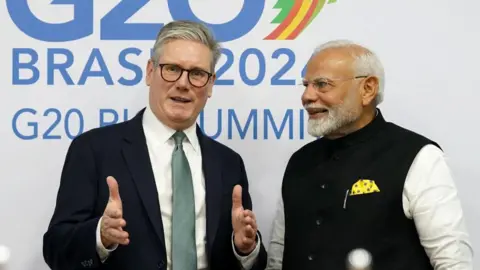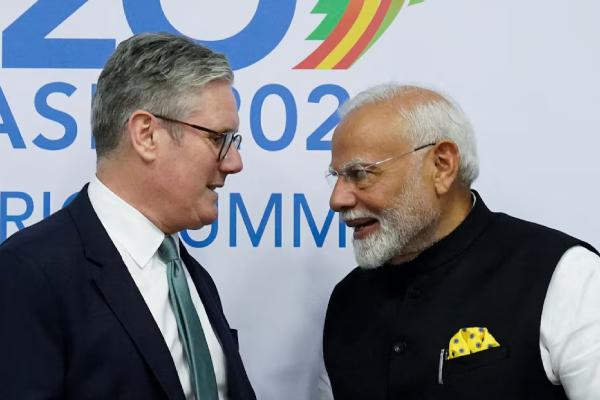Indian Prime Minister Narendra Modi is in London for a two-day state visit to finalise a free trade agreement (FTA) with the United Kingdom, a deal regarded as a strategic economic and political milestone for both countries during global trade turbulence, which is fueled in part by US President Donald Trump’s protectionist policies.
The agreement is critical for the United Kingdom, which hopes to gain a large post-Brexit trade victory.
It is the UK’s most significant economic accord since leaving the EU.
This is India’s first large-scale free trade agreement outside Asia. This move marks a departure in its previously protectionist approach to global trade, as well as a long-term economic relationship with the United Kingdom.

Modi’s fourth visit to the UK as prime minister began on July 23rd.
According to the Indian government, the agenda includes ‘wide-ranging’ conversations with UK Prime Minister Keir Starmer on trade, defence cooperation, security, and technical alliances.
Read Also
Modi plans to pay a courtesy visit to King Charles.
India emerged strong from the intense negotiations, securing several critical concessions. These include more flexible work visa rules for Indian nationals, mutual recognition of professional qualifications, and exemptions from UK national insurance contributions for temporary Indian workers, longstanding points of contention between the two countries.
Modi is presenting the agreement as an example of India’s expanding global influence. He is joined by Commerce Minister Piyush Goyal, who headed India’s negotiating team. The agreement has been signed, but it still needs to be ratified by the parliaments of both nations, which will delay its implementation until at least the middle of 2026.
99 percent of Indian exports to the UK will be duty-free under the new trade agreement. India’s textile, apparel, leather, processed food, gems and jewelry, and engineering goods industries are among the main beneficiaries.
In exchange, the UK will see phased reductions on 90 percent of its exports to India. For instance, duties on Scotch whisky, currently at 150 percent, will drop to 75 percent immediately and further decrease to 40 percent over ten years.
British-made cars, which currently face tariffs of over 100 percent, will benefit from a quota-based system under which duties will be reduced to 10 percent. Other UK industries to benefit include medical devices, pharmaceutical products, electronics, and aircraft components.
The Indian government sees the trade agreement as a catalyst to re-energise its ‘Make in India’ campaign and attract renewed foreign direct investment, which has recently slowed.
Importantly, India excluded its vast agricultural sector, which employs over 40 percent of the national workforce, from the agreement. Agriculture remains a politically sensitive industry and was treated as a red line during negotiations, similar to its position in India’s stalled trade talks with the United States.





